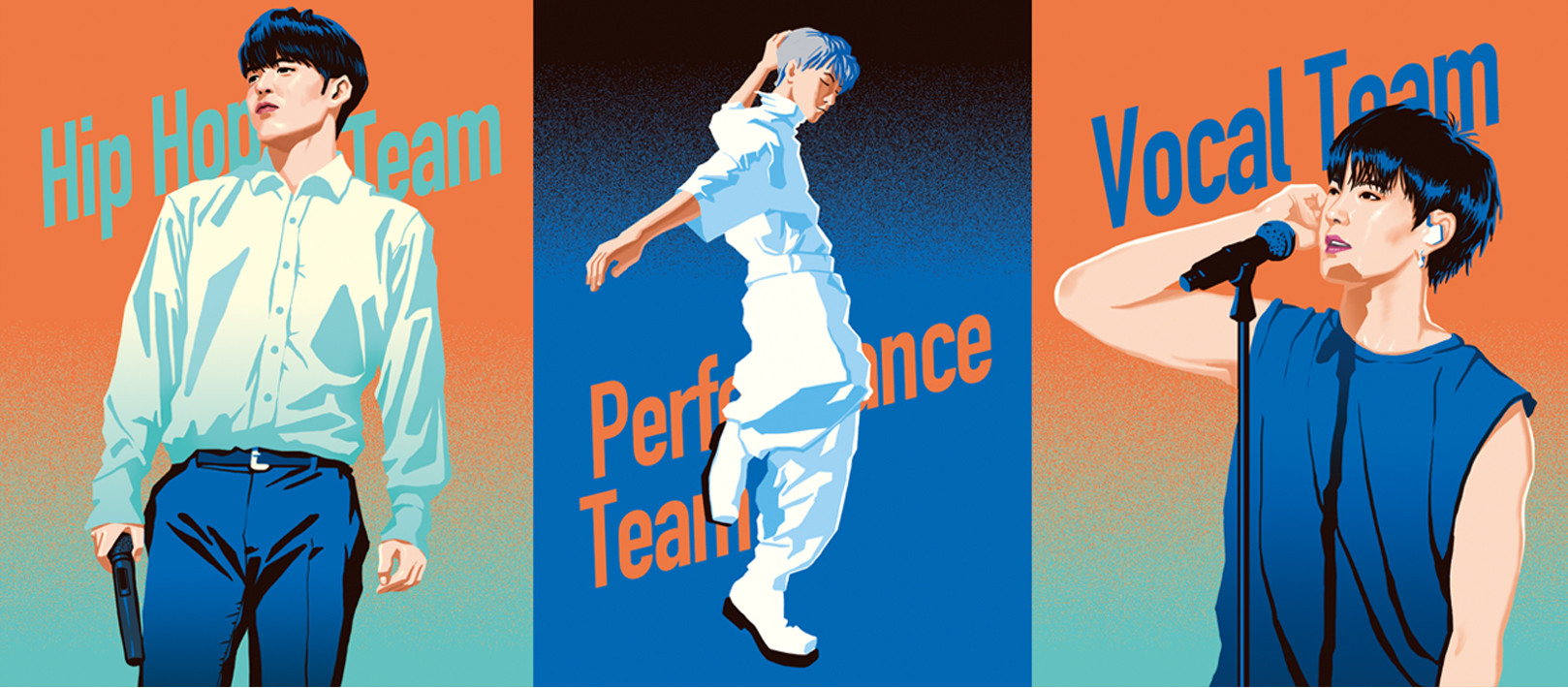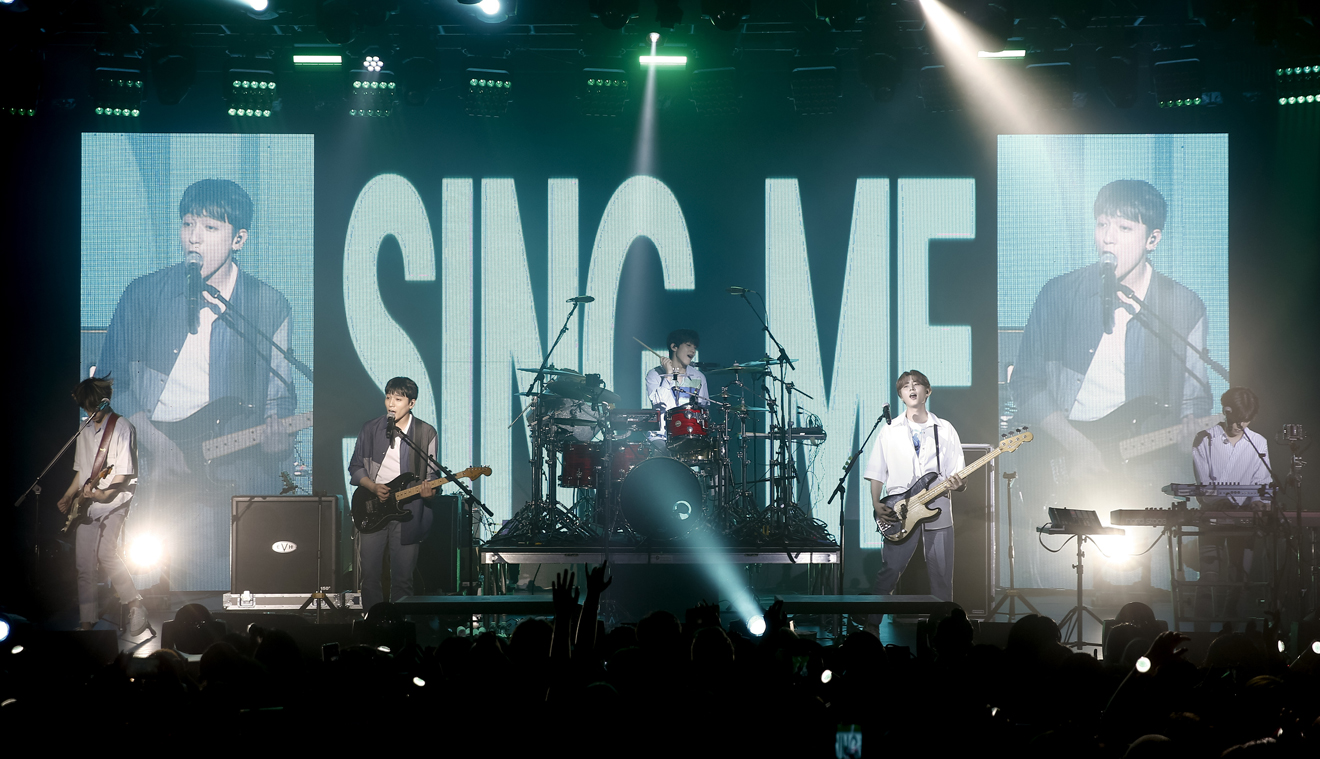October 2021

October 2021
Why does an idol band succeed? Although the skills of each member are important, the strategic mind of the agency is even more important. Several Korean agencies are leading the golden days of K-pop with solid and imaginative strategies.
Written by
Lim Jinmo,
pop columnist
Illustrated by
JB
Photo courtesy of
Yonhap News

If an entertainment management agency plans to train an idol band to go global, where will it focus? Generally, it will target New York and Los Angeles in the United States. Or, it may target London or Paris.
However, SM Entertainment, the agency of the K-pop vanguard group H.O.T., was different in this respect.
Unexpectedly, it focused on China. If H.O.T. had chosen the United States or Europe as its target in 1999, it would run into difficulties with few established partnerships in those regions at the time. The Korean Wave, which hit East Asia starting from China, may not have even happened.
SM Entertainment pursued a vision of the future based on reality. That H.O.T. ignited the Korean Wave in China clearly showed how timely the choice and strategy of SM was.
At that time, China’s young generation, the so-called “little emperors,” were interested in popular culture. H.O.T. performances presented them with never-before-seen artistic fantasy. The day after an H.O.T. performance in Beijing, the Chinese newspaper People’s Daily posted an article entitled “The Storm of the Korean Wave” after observing the fervent response of the audience. It was the beginning of the Korean Wave.
SM’s executive producer, Lee Su-man, was aware of the potential of the colossal Chinese market. So he launched another project aimed at the country.

TVXQ debuted in 2004 with “Hug.” While most idol bands had English names, TVXQ took a Chinese name. Though the name was strange to Korean ears, TVXQ rose to the top of the Korean Wave and became a hit throughout China. This demonstrated that strategic thinking and accurately identifying trends determined which entertainment companies rose to the top in Korea.
The rookie girl band Aespa, which quickly took off with young audiences with the 2021 hit “Next Level,” is the latest evidence of the success of SM’s signature strategy. The group has drawn public attention as a taste of the future of K-pop, bringing together artificial intelligence, the metaverse and other Fourth Industrial Revolution industries.
Rival entertainment company YG differentiated itself by focusing on the United States, specifically American hip-hop.
The result was Big Bang, which became YG’s answer to TVXQ. They pursued American hip-hop from the very beginning. With the successful launching of BLACKPINK and 2NE1, YG proved its focus on the United States was a success.
Park Jin-young, the executive producer of JYP, has also been targeting the United States as a base of global expansion. That the Wonder Girls became the first Korean artists to crack the Hot 100 Billboard Singles Chart with their 2009 single “Nobody” was the result of Park’s determination to conquer the U.S. market. He focused on a “pop dance” style that was different from YG’s hip-hop style.
JYP became a leading music agency by identifying when novelty is required. For example, TWICE demonstrated the multinational identity of K-pop, DAY6 tied together with the rock and idol genres, and ITZY focused on the “teen crush” sound.
The boy band SEVENTEEN is a prime example of this strategy, too. The team name of “17” comes from adding 13 team members, three “units” and one community of fans.
Here, the concept of the “unit” is important. For an idol band where the ties between members are absolutely crucial, individuality and self-consciousness are often restricted. The unit, however, minimizes conflict within the group while maximizing the tastes and skills of one or several members. SEVENTEEN formed three units: vocals, hip-hop and performance. This lets all members show themselves off.
Several Korean agencies are leading
the golden days of K-pop with solid
and imaginative strategies.
 SEVENTEEN has earned praise from fans for its “unit” strategy.
SEVENTEEN has earned praise from fans for its “unit” strategy.
All idol bands have their own catchphrases and slogans. Though observers often credit only singing ability and visuals for K-pop’s success, agency programming capabilities, i.e, their strategic mind, may have been an even bigger factor in the global success of Korean pop. Their strategies are responsible for preventing teams from being cast to a standard, presenting the diversity of K-pop. A strategic mind is the basis of global K-pop. Thanks to the outstanding strategic minds of Korea’s entertainment companies, K-pop’s future is even more promising.
 K-pop bands are succeeding in global markets based on minute planning by their agencies.
K-pop bands are succeeding in global markets based on minute planning by their agencies.
